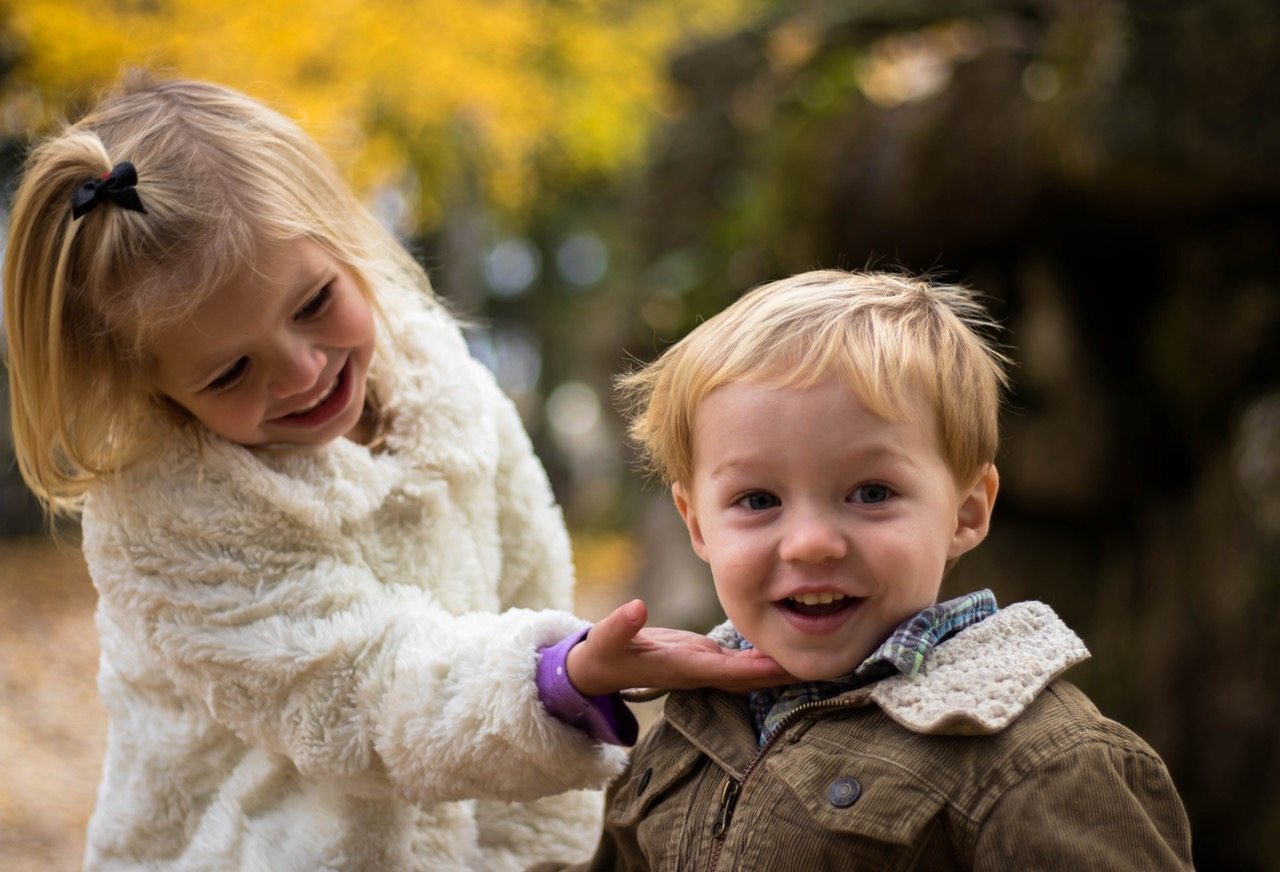
Social skills: Tips for better and healthier relationships
Social skills. Do you have a hard time starting conversations? Do you avoid speaking to strangers because they intimidate you? You can’t change the subject in a conversation without it seeming abrupt? People think you don’t know how to listen? Do you interrupt a lot? In this article, we give you some tips on how to improve your social skills and how to teach social skills to your children.
What are social skills?
Social skills are those that allow us to communicate and interact effectively with others. We communicate through verbal language, gestures, posture, the tone of voice and even our physical appearance. That is why if we want to improve our social skills we must have an effective communication of all these aspects.
Human beings are social animals. Our life is based on relationships with others, hence the importance of knowing how to manage ourselves in social environments. Satisfactory social relationships contribute greatly to our levels of well-being and quality of life. In addition, cultivating and maintaining a supportive network with loved ones prevents psychological disorders and problems. We will also have better working relationships. By being good communicators we will get what we want more easily.

Social Skills
Developing and training our social skills is about paying attention to how we communicate with others and the messages we send.
Like any skill, social skills are learned. There are people who have managed to learn them easily and almost unaided. Other people find it more difficult, but it is nothing that cannot be acquired through practice.
Consequences of a lack of social skills
A deficit in social skills can be very damaging.
- It will reduce our success in creating and maintaining social relationships.
- Our self-esteem will be damaged.
- Difficulty expressing our desires and needs.
- Widespread emotional distress.
- Academic and work performance will be reduced.
- More likely to develop a psychological disorder, such as anxiety, social phobia, depression.
How to improve social skills
Non-verbal communication
With non-verbal communication, we transmit more than we think, and we usually don’t pay attention to it. There are different kinds of nonverbal communication that we can modify to improve our social skills.
- Body movement: hand gestures and head movements.
- Posture: the way your body is sitting or standing, if your arms are folded.
- Eye contact: the amount of eye contact often determines the level of trust and sincerity that is transmitted.
- Non-Verbal Language: they are non-linguistic vocal aspects, such as tone of voice, speed, intonation, prosody, etc.
- Closeness or personal space: determines the level of intimacy.
- Facial expression: such as smiles, eyebrow movements and muscles surrounding the eyes.
- Physiological changes: such as sweating or facial redness.
How do we master the art of non-verbal communication? It is important to know the consequences of our non-verbal behavior in order to use it more consciously. All behaviors can be useful depending on the situation, none of them are wrong in themselves. It is also important to look at other’s gestures to see what they are really communicating.
How do we improve our non-verbal language?
- The absence of hand gesturing can cause our speech to be flat and monotonous. Hand movements are a way to emphasize the speech and our interlocutor can follow it better. However, very rapid gesturing can be distracting and annoying. Therefore, make sure your gestures are slow and keep pace with what you’re saying.
- If we want to transmit kindness and friendliness the best thing is that our posture be open and relaxed. Crossing arms and legs can transmit disagreement, discomfort, nervousness. If our shoulders are down and we look down, we are transmitting insecurity. On the contrary, if we are standing upright and looking ahead we transmit security.
- It is very important to maintain optimal eye contact. If we do not look into the eyes of our interlocutor, he may think that we are hiding something or not trusting him. However, keeping your eyes fixed can be very uncomfortable and challenging.
- It is very important to respect the personal space of our interlocutor. This will depend on each individual’s own characteristics and the level of confidence. If you get close to the other person and the other person turns away, respect him or her and don’t keep getting closer. If on the contrary, the other person approaches you, perfect, you have established a new level of intimacy. We must pay attention to the signals he/she sends us. For example, if we touch his shoulder and notice how stiff he gets, it’s best not to touch him. Some people are very reluctant to make physical contact with strangers.
- The facial expression should be consistent with our speech. If it is not, the other person will perceive you as untruthful. A good way to connect with others is to “imitate” each other’s facial expressions. This comes naturally to many people and has to do with empathy, but other people find it harder. If the other person smiles, you too, if he looks sad, do the same. But don’t look forced, because it may be unnatural and the other person may notice.
- Physiological changes, such as sweating or turning red, can be more difficult to control. A good way to do this is by practicing relaxation, breathing or other techniques.
Social Skills: Conversation skills
We often find it difficult to start and maintain conversations. Especially with people, we don’t know much about, we don’t get out of the typical dull conversation about the weather. Ask yourself:
- Do I have trouble starting conversations?
- Am I running out of subjects to talk about?
- Do I avoid talking about myself?
- Do I talk too much about myself?
- Am I interrupting constantly?
- Tips to improve our conversation
In the following video, Celeste Headlee gives you 10 tips for better conversations.
- Listen and let them know you are paying attention. Use interjections as “ahá”. It sounds silly but it’s important. You can also paraphrase or repeat the last thing he or she has just said, be careful though no one likes a parrot.
- You can start a conversation by talking about the weather, making a compliment (“I love that sweater you’re wearing”), or by taking advantage of the theme of the book you’re reading. Anything you may have in common (school, work,etc.)
- Do nothing else while you’re talking. Listen and talk, nothing more. Multitasking can damage your relationships. Try not to think about what you have to do next, don’t look at your cell phone. Focus on the present moment, the conversation.
- Don’t be dogmatic, enter into any conversation assuming that you have something to learn from the other person. Don’t try to impose your opinion. Talk openly.
- Use open-ended questions: how, when, where, why. Let the other person express themselves. Avoid using questions that are answered with yes or no, as it greatly reduces the quality of the conversation.
- If you don’t know something, say it. Show yourself honest. Assuming that we don’t know anything makes us look more sincere, more pleasant and sympathetic.
- Don’t equate your experiences with theirs. If she’s talking about a family member who has passed away, don’t talk about when a family member of yours died. It is also often a way to play down the other person’s experiences.
- Don’t be repetitive. Don’t tell the same story over and over again, people get tired. If you have already told something that has happened to you or that you have achieved, don’t bring it up all the time, without it having anything to do with the subject.
- Don’t give too much detail. Save dates, irrelevant names, irrelevant details.
- Never interrupt. For people who are impulsive, this is hard for them because we talk a lot slower than we think and we are constantly thinking about what we could say. Notice when you interrupt, and always apologize when you do. Every time try to figure it out first until you stop. It is extremely frustrating to try to say something when you are being interrupted all the time.
Social Skills: Assertiveness
Assertiveness is a basic social skill that has been much talked about in recent years. Assertiveness consists of defending your rights, making requests, putting ourselves in our place respecting the rights of others. You can find out more about assertiveness in this article.
Social skills in children
Children learn social skills in a variety of ways: imitation, social and experiential reinforcement.

Social Skills
We have already mentioned the importance of having good social skills and exercises to improve them, but how do we pass them on to our children?
- If you want your children to have social skills, be a good example. Be careful of your behavior when you are in front of your child because he or she will copy it. Therefore, apply all the advice listed in this article.
- If the child is defending his or her rights properly, when he or she acts politely, listens to others and with consideration, carefully reinforce the child with caresses, smiles, smiles, and words of congratulations. If not, we explain to them the consequences of behaving in that way and try not to pay any more attention to them until they change their attitude.
- For example, if a child is asking for something by yelling, we can say,”That’s not a good way to ask for things. When you ask me without shouting and please, maybe I will give it to you.” When he does well, we will grant him, if it is a reasonable request.
- Cultivate their self-esteem.
- Promote their ability to listen. Listen to him and tell him that we can learn a lot if we listen to others.
- Encourage him to relate to others. The best way to train in social skills is to practice them.
- Don’t let your child isolate himself. Encourage them to participate in activity groups with other children.
- Help them to solve their conflicts properly, respecting others and himself.
This article is originally in Spanish written by Andrea García Cerdán, translated by Alejandra Salazar.














